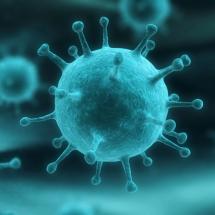
|
Microbiology
Doctoral Programme,
Faculty of Food and Biochemical Technology
The purpose of the study programme is to train specialists with a comprehensive understanding of microbial populations, their activity, phylogenetic and metabolic diversity, mechanisms controlling targeted changes of their genetic information or chemical principles affecting the relationship within microbial communities. The study programme is based on the combination of various forms of tuition and laboratory research, with the main emphasis on independence, initiative and critical approach of students. Alumni of this study programme should be able to routinely use any of the acquired knowledge, skills and competences for industrial or other applications. CareersAlumni of this study programme should have a comprehensive microbiological, biochemical and engineering background that will enable them to fully understand the microbial world. They will dispose of deep theoretical insight as well as practical skills in all key areas of microbiology, including biochemistry of microorganisms, molecular biology, genetic engineering and other closely related fields. The alumni of the study programme will find employment in all areas of biotechnology, food, pharmaceutical or chemical industry, in clinical laboratories, in the field of environmental sciences and agriculture. Last but not least, the alumni should be highly competent to work in academia. Programme Details
Ph.D. topics for study year 2026/27Dissecting Bordetella interaction with the respiratory epithelium
AnnotationThe classical Bordetella species cause respiratory infections in mammals, including whooping cough in humans caused by Bordetella pertussis and B. parapertussis, and respiratory diseases in animals caused by B. bronchiseptica. This PhD thesis investigates the genetic determinants that enable Bordetella species to colonize and persist on the respiratory epithelium, using transposon sequencing (TnSeq) as the primary strategy for genome-wide functional analysis. By applying TnSeq in an air–liquid interface model of primary nasal and/or tracheal ciliated epithelia, the thesis identifies genes essential for Bordetella colonization of the respiratory surface. Genes identified through TnSeq will be further analyzed using targeted mutagenesis, transcriptomic profiling, and phenotypic characterization to define their specific roles in bacterial adhesion, metabolism and biofilm formation. The project will generate a high-resolution functional map of Bordetella determinants involved in the early stages of airway colonization. Metabolická výměna při polymikrobiálních infekcích
AnnotationPolymicrobial infections, where multiple microbial species co-infect a host, often exhibit synergistic interactions that enhance the collective pathogenicity. The thesis will study neutrophil- modulated fungal-bacterial and fungal-fungal interactions involving metals, metallophores, and metalloproteins, which are the critical molecular players of all parties in the tussle. The prospective student will investigate the physicochemical dimensions of the microbe and host molecules at the inflammation site using metal-linked native mass spectrometry, metabolomics, imaging, and immunoassays. In in vitro studies, the student will define critical infection processes at the intramolecular, molecular, intracellular, and intercellular levels. Biomolecular interactions established in vitro will be studied in human body fluids or biopsies. The thesis will demonstrate the non-canonical roles of host and pathogenic metal-derived molecular players. Through the molecular mechanisms underlying polymicrobial infections to identify novel host cellular targets for microbial antigens. Vícekroková enzymová syntéza bioaktivních chitooligomerů s různým stupněm acetylace
AnnotationThe dissertation project focuses on the development and optimization of a three-step enzymatic synthesis of bioactive chitooligomers (COS) that can be used in ecological crop protection. Chitooligomers are ?-1-4-linked oligosaccharides composed of N-acetylglucosamine and glucosamine units, whose biological activity depends mainly on their degree of polymerization, degree of acetylation, and acetylation pattern. Chitooligomers are known for their ability to elicit an immune response in plants and can therefore be used as natural substances to protect crops from microbial pests. As part of the project, mutant variants of microbial chitinases with increased hydrolytic activity will be designed and prepared to increase the efficiency of chitin cleavage, which will be used to prepare COS fractions with lower degrees of polymerization. In the next step, known or newly prepared mutant variants of microbial chitinases and ?-N-acetylhexosaminidases with transglycosidase activity suitable for the preparation of chitooligomers with a degree of polymerization of 5-10 on a preparative scale will be used. These chitooligomers will then be fully or partially deacetylated using new chitin deacetylases, yielding COS fractions with varying degrees of polymerization and acetylation that are not yet available. The antimicrobial and stimulatory activity of the prepared chitooligomers with a defined degree of polymerization and acetylation will be tested in collaboration with the Institute of Experimental Botany of the Czech Academy of Sciences. |
Updated: 25.3.2022 16:21, Author: Jan Kříž

